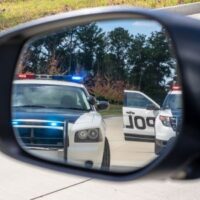Can I Live Stream a Police Interaction?

We’ve all seen countless videos of police manhandling citizens who were allegedly involved in criminal activity. Such chronicles, generally recorded by concerned bystanders, have alerted the public to the unnecessary use of force by officers across the country. Beyond simply videotaping arrests and other police interactions with the public, is it legal to actually live stream such incidents? While it could benefit the fight for civil rights, couldn’t it also hamper an officer’s ability to do their job, and even lead to riots and civil unrest?
The Legal Question
The courts have repeatedly upheld the right of citizens to videotape police and other law enforcement personnel when they are performing public duties. It’s clearly a right guaranteed by the First Amendment. But livestreaming is another animal altogether. It allows one to broadcast an officer interaction in real time. What does the law say about that?
Potential Danger
A lot of officers are uncomfortable with live streaming them when they are on duty because they believe it interferes with their ability to properly do their jobs. And while the law is evolving on this issue, we do have some direction from the Fourth Circuit as to the legality of live streaming.
The case was heard in February of 2023 (Sharpe v Winterville Police Department), and involved a motorist who was stopped by police in which a passenger immediately started to livestream the event. The officer explained that, while the passenger was permitted to videotape the interaction, live streaming was prohibited because it creates a needless hazard in that it could lead to other people coming to the location and causing problems at the scene of the traffic stop.
The passenger challenged the officer’s claims in court, claiming a violation of First Amendment Rights. The Fourth Circuit agreed with the plaintiff, stating that livestreaming contributes to the information the public has about law enforcement activities, and is protected by the First Amendment under these circumstances.
However, the court also recognized that officer safety might be a factor in some situations, such as if an individual came too close to the officer, inhibiting the ability to perform duties, or if viewers of the livestream were invited to the scene in order to protest or otherwise interfere with the officer’s actions. Under such circumstances, officers might have greater legal leeway to claim that First Amendment protections were limited and might not include live streaming.
The Criminal Defense You Deserve
At Lobo Law, our dedicated criminal defense attorneys are committed to protecting your rights. If you are facing criminal charges, contact our Las Vegas office today for a confidential consultation.
Source:
ca4.uscourts.gov/opinions/211827.P.pdf
